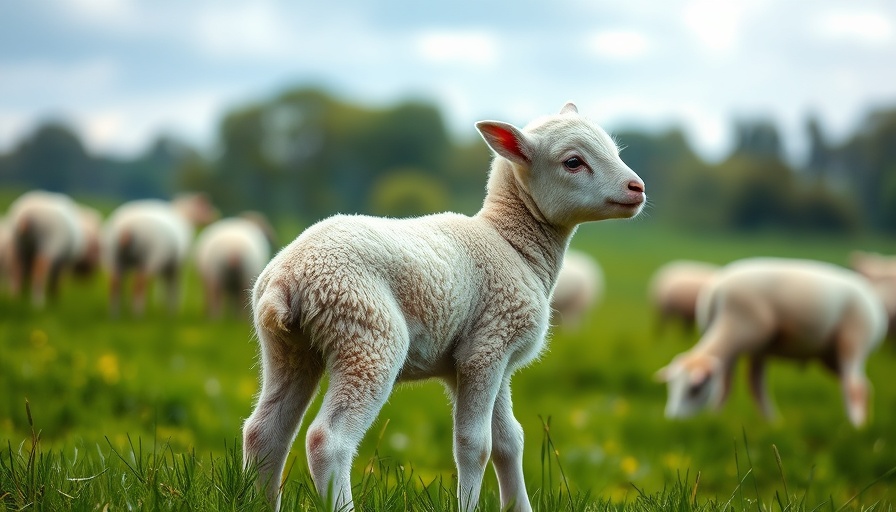
The Hidden Cruelty Behind Wool: Understanding Live Lamb Cutting
In the vibrant world of fashion, consumers are often dazzled by the aesthetic appeal of garments, particularly those crafted from wool. However, a disturbing reality lurks behind the scenes—live lamb cutting (LLC), a brutal practice that affects millions of lambs annually. A recent report by FOUR PAWS highlights that an alarming 67% of fashion brands fail to adequately address this issue, leaving consumers in the dark about animal welfare in their wool supply chains.
Why Transparency Matters in Fashion
As awareness grows regarding ethical fashion, consumers are seeking greater transparency about the origins of their clothing. The FOUR PAWS report explores the sourcing practices of over 100 brands, revealing a stark divide between those that prioritize animal welfare and those that do not. For example, while brands like Patagonia and Arcteryx lead in transparency, high-profile names like Michael Kors have fallen woefully short, receiving a zero score for their lack of response to welfare concerns.
Consumer Power: The Demand for Ethical Choices
The demand for cruelty-free wool is at an all-time high, as informed consumers seek alternatives to support their values. FOUR PAWS emphasizes this transition, noting that a quarter of contacted brands strengthened their animal welfare commitments after the report was initiated. As such, fashion companies are under pressure to adopt certified sourcing and transparent labeling that empowers consumers. This movement aligns with the growing trend of consciousness around sustainable fashion and ethical clothing production.
Breaking Traditional Norms: A Call for Change
Australia remains the epicenter of live lamb cutting, with the practice being both legal and widespread. The procedure involves painful mutilations to lambs without adequate pain relief, often justified by the necessity to prevent flystrike. However, alternatives exist, such as breeding sheep that are naturally resistant to fly infestations. As consumers demand change, brands must step up, transitioning away from outdated practices and seeking humane solutions.
Concrete Steps Toward a Kinder Future in Fashion
Despite the challenges, optimism is on the horizon. FOUR PAWS reports that brands are starting to take actionable steps toward ethical practices. Some brands, including H&M, have committed to using only certified LLC-free wool by 2030. Furthermore, promoting local sourcing and sustainable materials aligns with the interests of contemporary consumers, particularly those invested in the future of African designers who prioritize cruelty-free practices.
Shifting Narratives: The Future of Fashion
The fashion industry is at a crossroads, with opportunities to redefine norms and create a sustainable future for both animals and consumers. By leveraging technology, such as 3D-printed fashion and AI-driven design, brands can innovate while adhering to ethical principles. The rise of social commerce also allows consumers to make informed choices, thus fostering a circular economy and promoting sustainable lifestyles.
Your Role as a Conscious Consumer
With the increase of eco-friendly materials and culturally rich designs like Kente fabric and Ankara prints, consumers now have the power to impact industry standards through informed decisions. By opting for ethical brands and supporting African luxury brands that embrace sustainable practices, shoppers can foster positive changes within the industry.
Bring Momentum for Change
As the conversation around animal welfare in fashion gains momentum, your voice can drive the change required. Engage with brands that prioritize cruelty-free wool and demand transparency in sourcing. Together, we can hold the fashion industry accountable to protect not only lambs but the ethical principles of sustainability and consumer rights.
Be part of this movement for change by demanding better practices and promoting transparency in the fashion you wear. The heart of fashion should not only beat for beauty and style but also for compassion and integrity. Let’s make informed choices that reflect our values!
 Add Row
Add Row  Add
Add 




Write A Comment